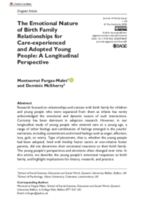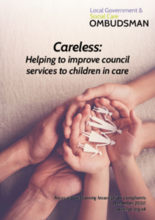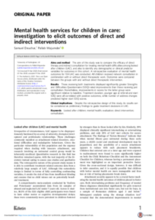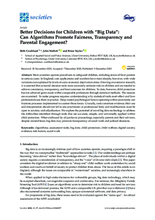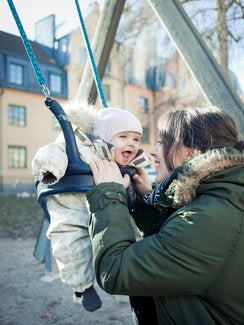

Displaying 291 - 300 of 1585
In this article, the authors describe young people’s emotional responses to birth family, and highlight implications for theory, research, and practice.
This paper presents a potentially fruitful theoretical framework for examining the transition out of state care.
This article reports on the use of a suite of validated instruments to measure the impact of services on children and their parents in receipt of services provided by an Irish Non-Governmental Organisation (NGO) across their seven family centres.
This chapter will record the views of a small sample of elders (now in their 70s, 80s and 90s), who grew up in Barnardo’s facilities in the UK, on being separated from their siblings and how they re-connected with their brothers and sisters in old age.
In this report, the UK Local Government and Social Care Ombudsman is highlighting the experiences of children in the care system – and the difficulties they face when councils get things wrong.
A recent watchdog report - which looks at the journey of children coming into care in the UK, creating stability, contact arrangements and eventually leaving care - has revealed "heart-breaking decisions about children in care," says this article from BBC News.
The aim of this study was to compare the efficacy of direct therapy and indirect consultation for treating mental health difficulties among looked after children (LAC), and also to identify any demographic or clinical predictor variables for outcomes in this cohort.
This article examines the reasons that child protection has not achieved gains made within comparable professions through statistical methods.
This study assesses the internal representations of three groups of children, as measured by the Story Stem Assessment Profile (SSAP). These were: (1) a maltreated, late-adopted (MLA); (2) a non-maltreated, early-adopted (EA) sample; and (3) a non-maltreated community sample (COMM).
This article explores birth parents’ views on their needs and perceptions of support delivered by two different interventions: one offering support to individuals and the other providing a parental group.

